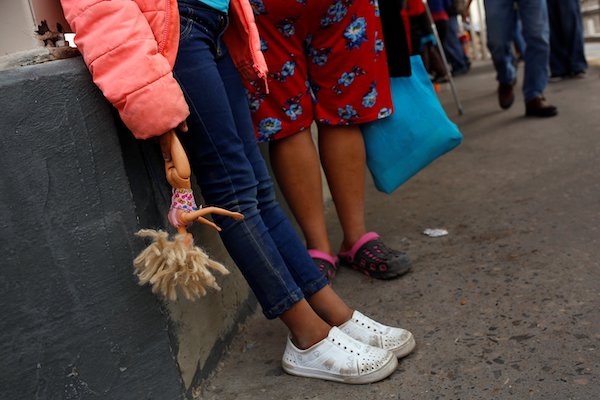By Rhina Guidos
BALTIMORE (CNS) — Catholic immigration advocates sent a positive message to U.S. prelates at end of the Nov. 17 public session of the U.S. Conference of Catholic Bishops’ fall general assembly, saying 3 million to 11 million people in the U.S. could soon benefit from some type of immigration reform.

Anna Gallagher, executive director of the Catholic Legal Immigration Network, told the bishops in Baltimore that they should be proud of a program started by U.S. prelates.
“I’m proud to say that we have grown from an organization of a handful of affiliates started by Bishop (Nicholas) DiMarzio in the 1980s, during the first amnesty, to now over 400 affiliates and we are prepared for the second amnesty,” she said. “The Catholic Church created what I call the largest poor people’s immigration law firm in the country.”
Affiliates of the agency, known as CLINIC, have over the years helped one of the most vulnerable of the country’s populations, she said.
At the same time, advocates are seeing increasing numbers of migrants in need, including many seeking safety who are being deported.
“This is a time of particular challenge and opportunity,” said Gallagher. “Thousands of men, women and children are living in misery at our southern border, waiting for access to justice. Thousands of Haitians have been deported from the United States and continued to be deported without access to justice.
“Millions of our brothers and sisters, our immigrant brothers and sisters, are in the United States without status, caring for our children, working in our hospitals, cleaning our homes and providing essential services, without (legal) status.”
And yet there’s hope that soon there may be some legislation to help some of them, she said.
In a separate presentation about immigration, Auxiliary Bishop Mario E. Dorsonville of Washington, chairman of the USCCB’s migration committee, said the public has expressed overwhelming support for recipients of Deferred Action for Childhood Arrivals — minors brought into the U.S. illegally as children — as well as farmworkers.
“People want reform for these groups,” he said, adding that the migrants aren’t asking for a house or for material goods, but simply the chance to make a new life in the U.S.
He asked the bishops to advocate, pray and walk with immigrants in their respective dioceses.
Gallagher asked bishops to visit CLINIC affiliates in their localities.
“As we wait, we are hopeful that legalization will happen, and it will be (for) anywhere between 3 million to 11 million. Our great hope is that it will be 11 million,” Gallagher said.
Bishop Dorsonville said the bishops would receive a document detailing statistics about immigration as well as stories behind the human faces and human tragedy in immigration stories.
He asked that bishops not only accompany migrants in their dioceses but also inform themselves about those in their communities.
“Advocacy cannot be done without facts,” he said.
He also asked them to seek the intercession of Mary to help migrants as they accompany them in prayer.
“Pray so Mary can be the intercessor for these communities,” he said. “Our hope is that everyone may be embracing this sense of prayer with immigrant communities … sheep that God in his love entrusted in our care.”
